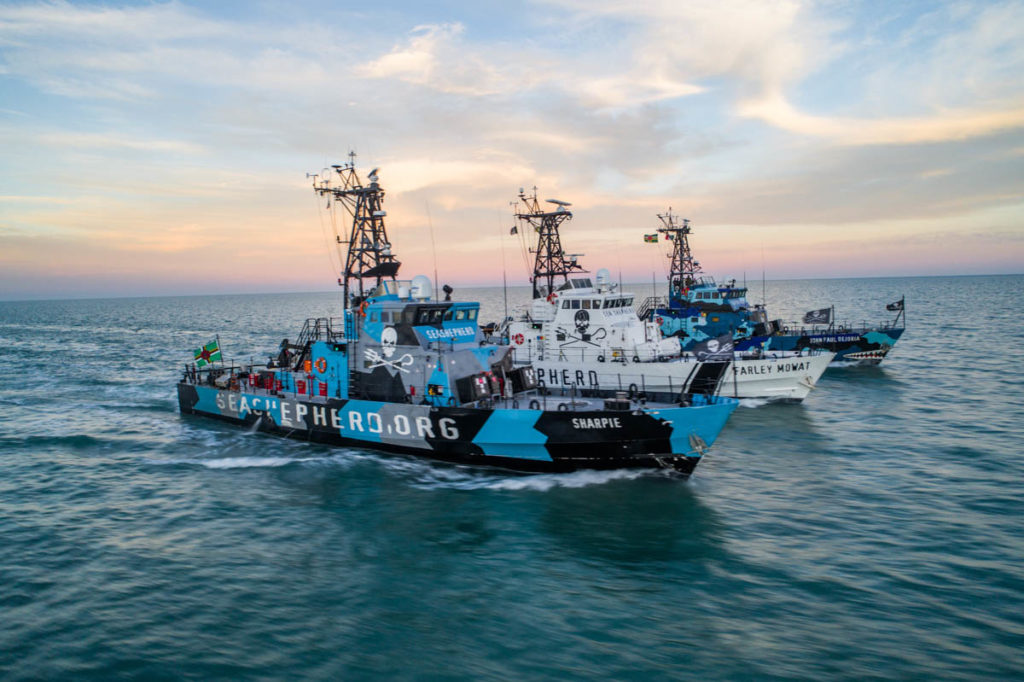From direct action to marine conservation research, Sea Shepherd protects endangered wildlife in some of the most fragile ecosystems.
Sea Shepherd Conservation Society’s contributions to the scientific community are featured in the prestigious academic journal Science.
Founded in 1880, Science is internationally recognized as a top-tier academic journal, publishing the best in scientific research across a variety of disciplines. Its articles are among the most cited in the world, and the journal is a trusted primary source of high-profile, peer-reviewed scientific research.
The article highlights Sea Shepherd’s transformation from a grassroots activism organization into an international marine conservation organization, collaborating with governments and researchers worldwide. Sea Shepherd’s scientific campaigns contribute to the research needed to shape policy and enhance protections for all marine wildlife. The non-profit environmental group has expanded efforts to work with the scientific community in recent years, establishing multiple campaigns focused on supporting conservation research.
In Mexico, Sea Shepherd’s collaborative campaign with Dr. Gustavo Cárdenas Hinojosa of the National Commission of Natural Protected Areas, referenced in the Science article, has helped to establish one of the largest photo identification databases of Cuvier’s beaked whales in existence. In 2020, the project led to the possible discovery of a new species of whale. In 2021, researchers on board Sea Shepherd’s vessel Sharpiesighted multiple vaquitas – the rarest marine mammal in the world – contributing to updated population estimates for this critically endangered animal. This work ties closely to Sea Shepherd’s Operation Milagro, a collaborative campaign with the Government of Mexico which aims to protect the vaquita by removing illegal fishing gear from the Zero Tolerance Area of the Vaquita Refuge.
“I am grateful to Science magazine for featuring Sea Shepherd Conservation Society’s science focus,” said Dr. John Payne, Sea Shepherd’s Director of Science. “Ocean life is threatened by global warming, acidification, fishing, and pollution, and it will take a concerted effort by the world’s science community to best address those threats. Sea Shepherd’s goal is to support the best scientists from countries around the world and help advance their work to protect the oceans.”







